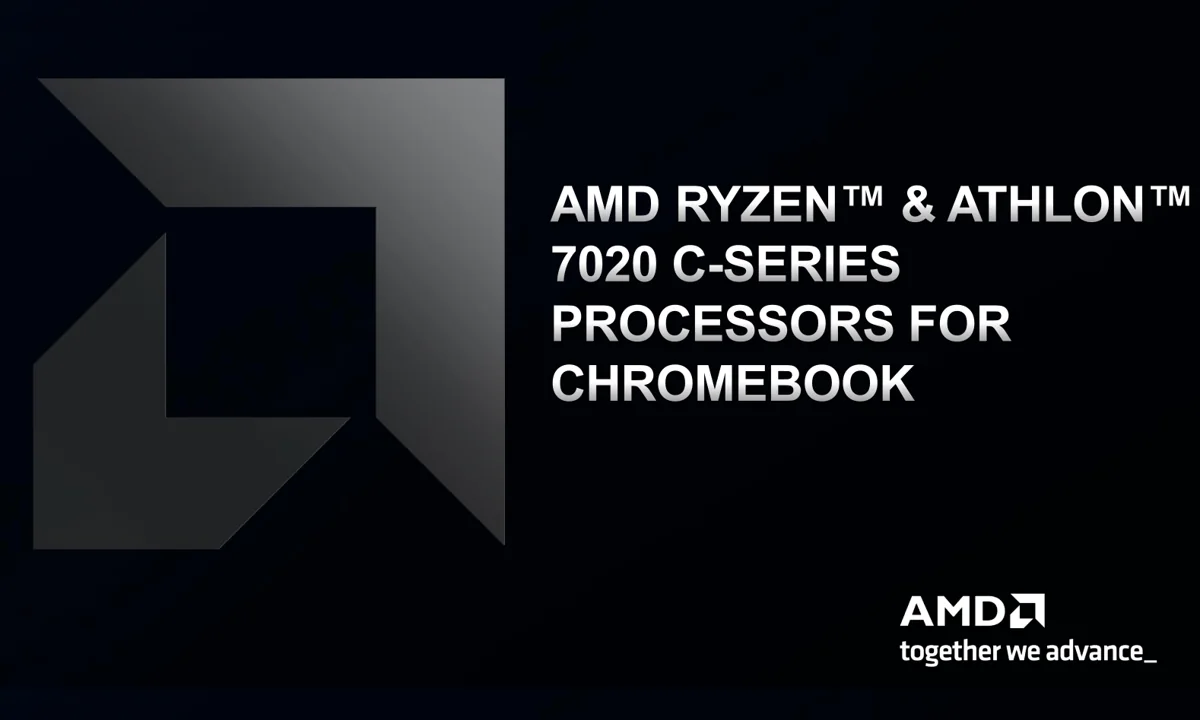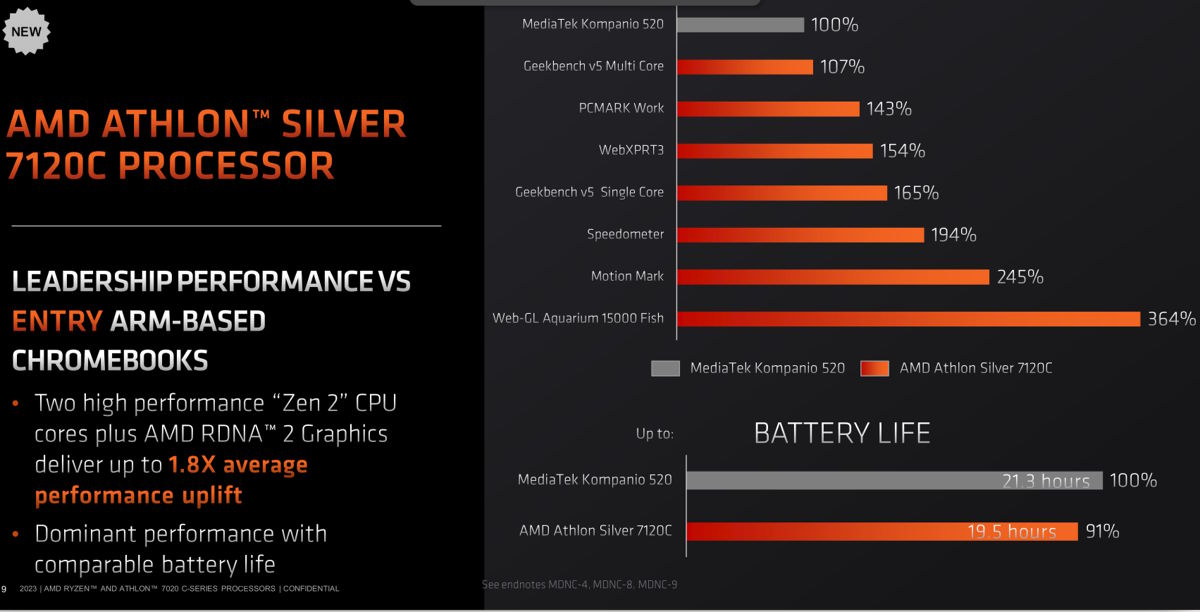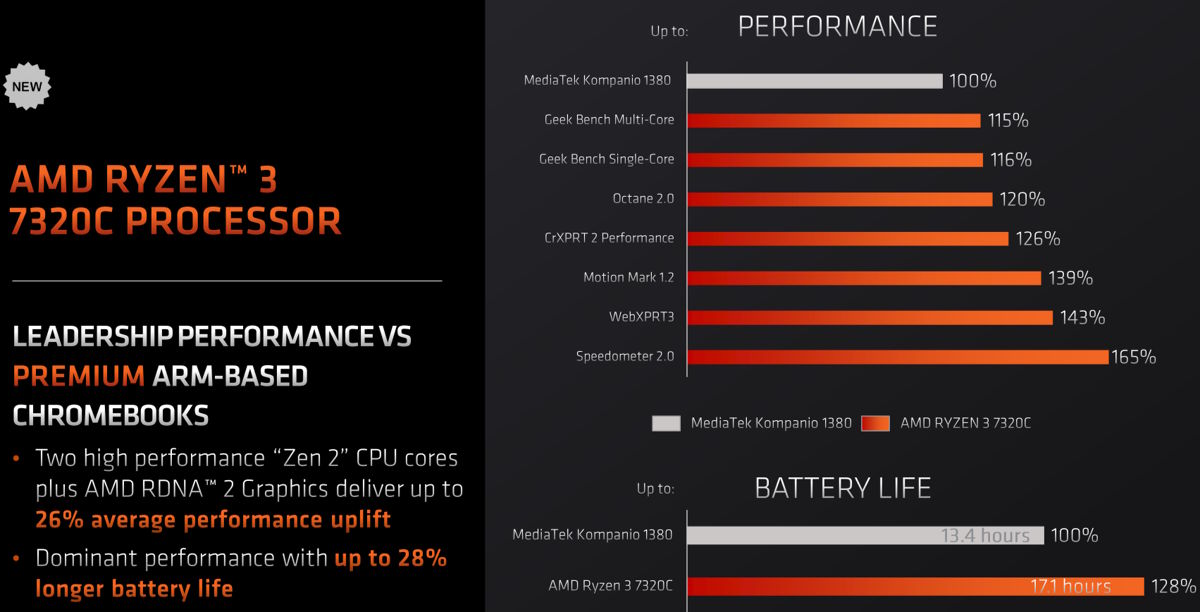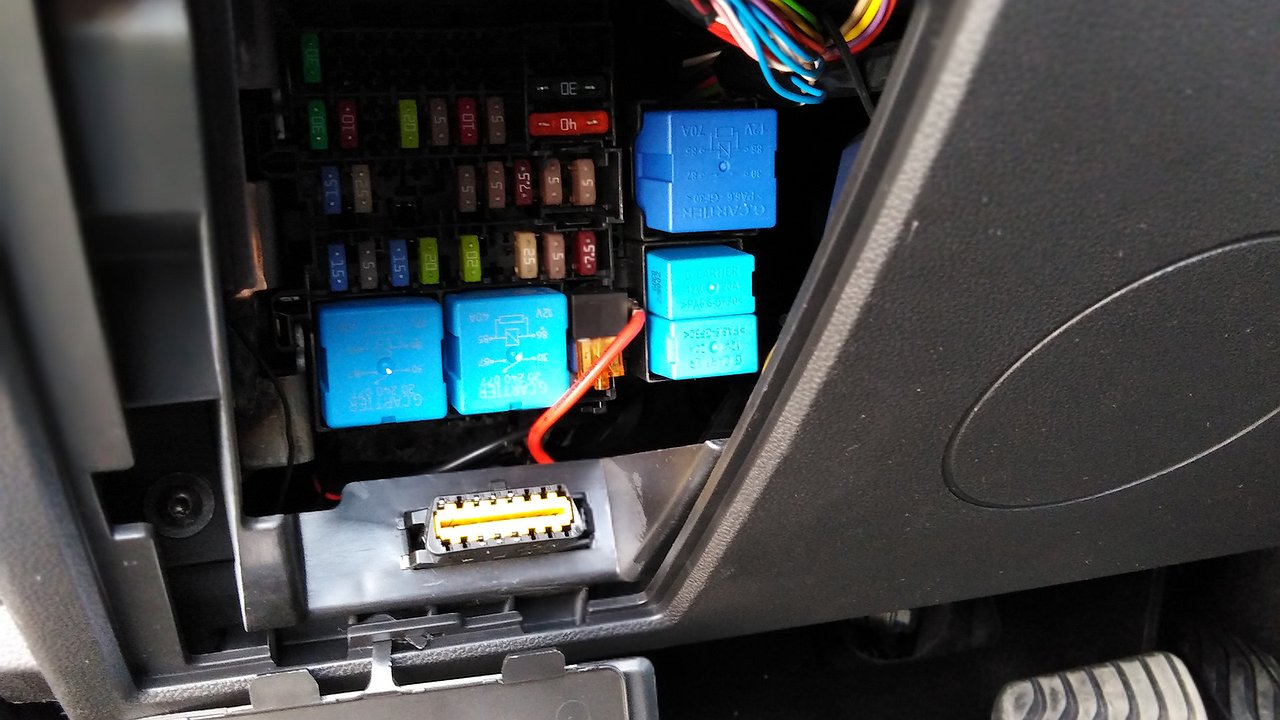AMD announced a series of processors Ryzen and Athlon 7020Cbelonging to the Mendocino family and primarily team-oriented chromebook. Thanks to this, we will find processors that will focus on laptops and efficiency, so that the autonomy offered by the battery is as long as possible.
Before going into feature details, AMD mentioned the growth that ChromeOS has been experiencing in recent years in terms of market share. In fact, the global share of Google’s PC operating system already exceeds that of Linux, largely due to the success that Chromebooks have achieved in the education sectors of some developed countries.
If we delve into the technological features of the Ryzen and Ahtlon 7020C series processors, they are manufactured by the 6nm process and using the Zen 2 architecture at the processor level, reach a maximum frequency of 4.3 GHz and RDNA 2 as an architecture for graphics processing. With reference to autonomy, AMD announced a maximum of 19.5 hours. The purpose is to offer processors that offer “uncompromised performance and battery life to meet everyday productivity demands.”
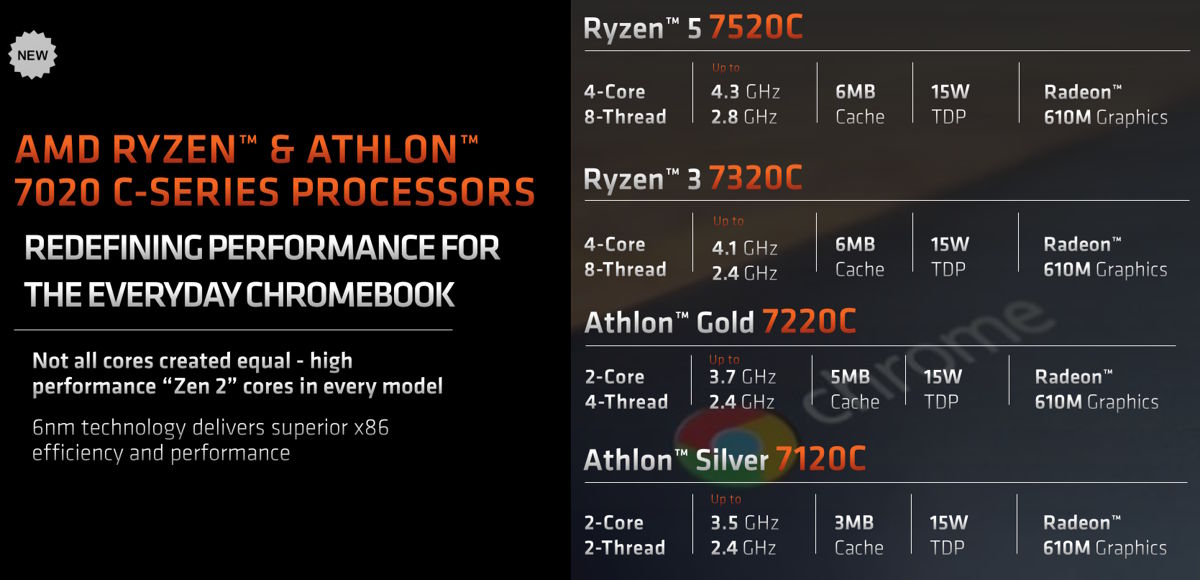
Ryzen and Ahtlon 7020C consist, at least initially, of four processors, which we will mention below along with their main features:
- AMD Athlon Silver 7120C: two physical cores, two threads (one thread per core), 2.4 GHz base frequency, 3.5 GHz maximum operating speed, 3 MB cache, 15 Watt TDP, and integrated Radeon 610M graphics.
- AMD Athlon Gold 7220C: two physical cores, four threads (two threads per core), base frequency 2.4 GHz, maximum working speed 3.7 GHz, 5 MB cache, TDP 15 watts and integrated graphics Radeon 610M.
- AMD Ryzen 3 7320C: four physical cores, eight threads (two threads per core), base frequency of 2.4 GHz, maximum operating speed of 4.1 GHz, 6 MB of cache, TDP of 15 watts and integrated Radeon 610M graphics.
- AMD Ryzen 5 7520C: four physical cores, eight threads (two threads per core), base frequency of 2.8 GHz, maximum operating speed of 4.3 GHz, 6 MB of cache, TDP of 15 watts and integrated Radeon 610M graphics.
Compared to the AMD Ryzen 3 3250C, the new AMD Ryzen 3 7320C is able to double the performance (approximately) in Web-GL Aquarium 15000 Fish and multi-core tests with Geekbench 5. In addition to the performance improvement, the autonomy offered by the latest model is 17.1 hours according to the manufacturer compared to 10.7 hours for the older processor.
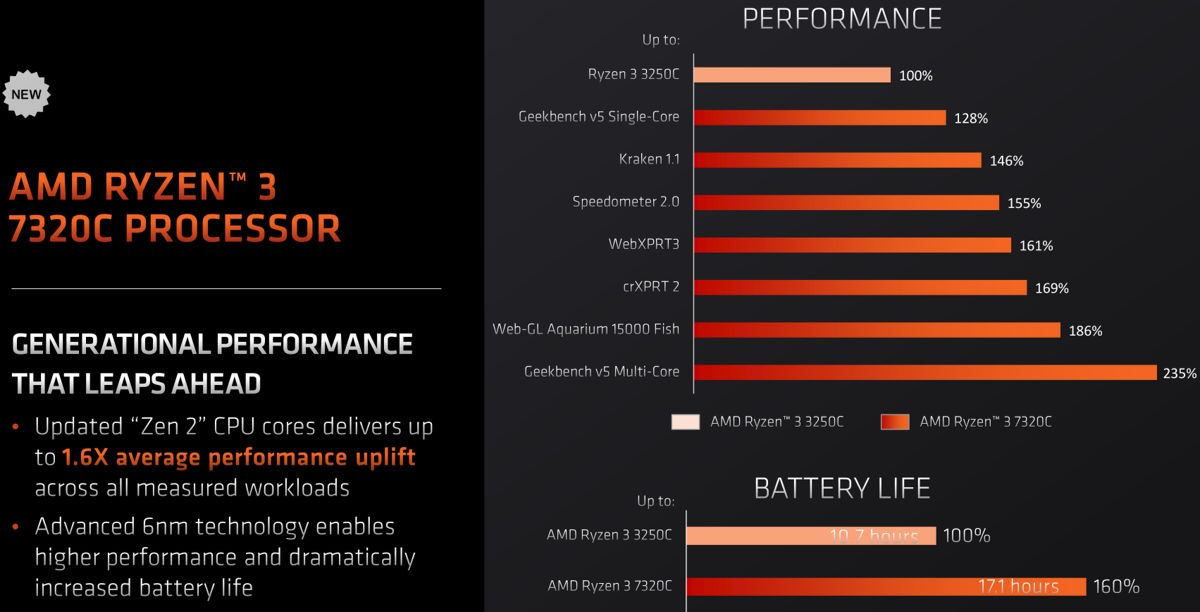
Two other comparisons presented by AMD are Athlon Silver 7120C vs. MediaTek Kompanio 520 and AMD Ryzen 3 7320C vs. MediaTek Kompanio 1380. In the first case it can be seen that the AMD processor is clearly superior in performance and offers autonomy only slightly lower, while in the second case the processor red giant at all levels better. Of course, we remember that these comparisons come from AMD itself.
Another model that was the subject of comparison is the Intel Core i3-N305, targeting the same segments as this new line from AMD. Here, according to the data handled by Radeon, we find ourselves with a scenario similar to the previous ones, but with a less bulky advantage on the side of the AMD Ryzen 3 7320C.

AMD announced two teams implementing models of these new processors. For starters, here it is Dell Latitude 3445 Chromebook, which will use different models of the series (unspecified), will support Wi-Fi 6 along with Bluetooth 5.2 and can equip up to 256 GB of data storage and up to 16 GB of RAM. There is on the other side ASUS Chromebook CM34 FLIP (CM3401)which uses an AMD Ryzen 7520C processor, a 14-inch display working with an aspect ratio of 16:10, an optional one-touch fingerprint sensor, a Full HD camera with a private shutter, Wi-Fi 6 and Bluetooth 5.2.
The Ryzen and Ahtlon 7020C series of processors promises to be a boost to the same lines of Chromebooks currently on the market. On the other hand, and although PCs with these processors may not be compatible with Steam, AMD is more interested than ever in the ChromeOS spin-off, since that operating system uses the standard Linux graphics stack, which in turn is the one that Steam Deck uses with SteamOS 3 .This factor may make its processors very attractive if Chromebooks one day manage to expand beyond the sectors in which they are popular.







